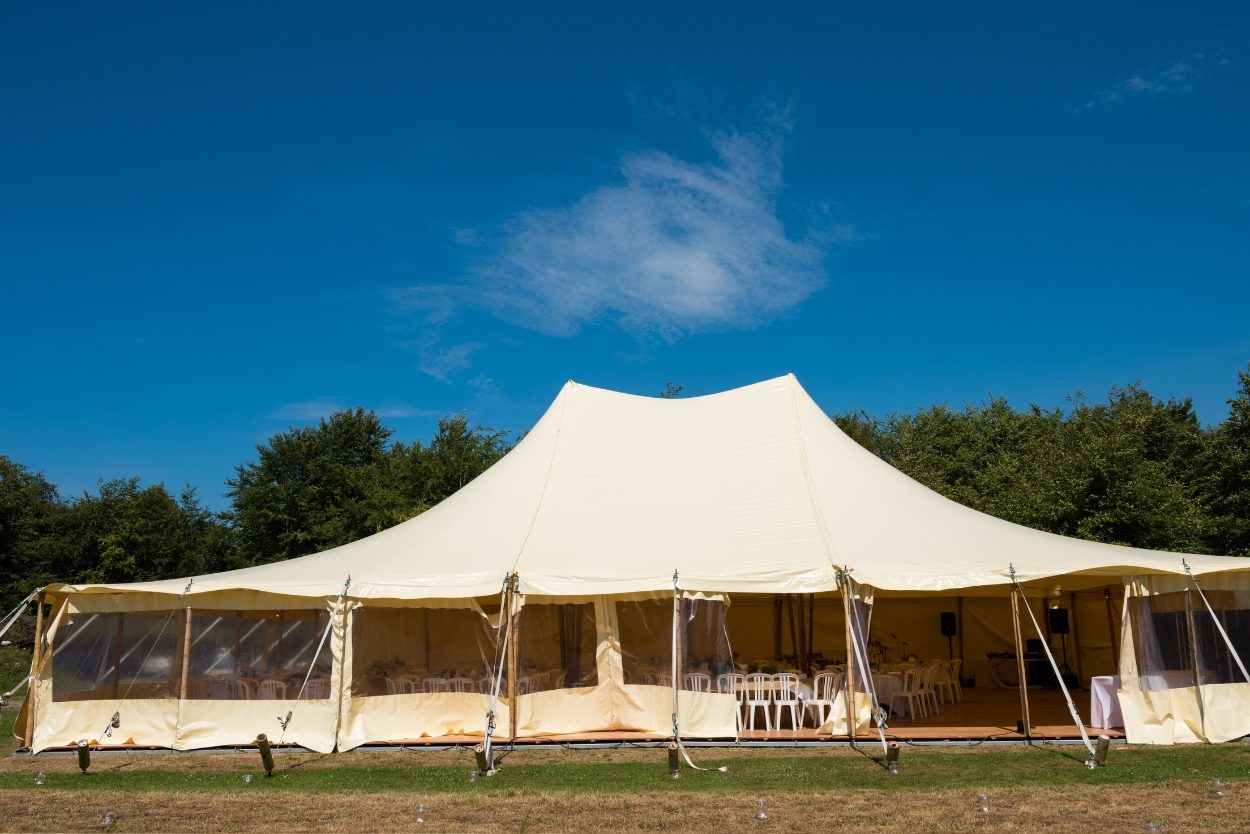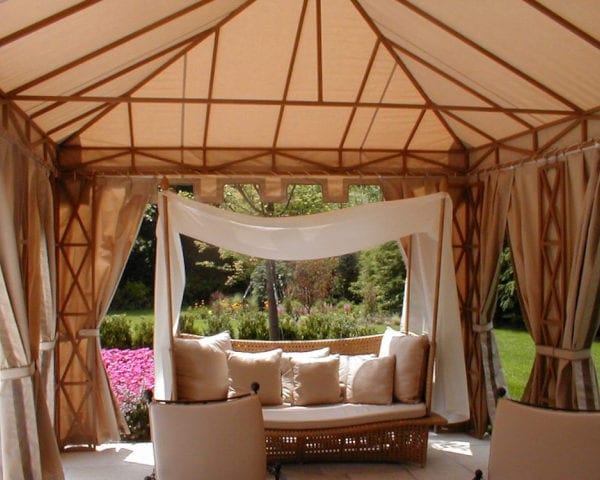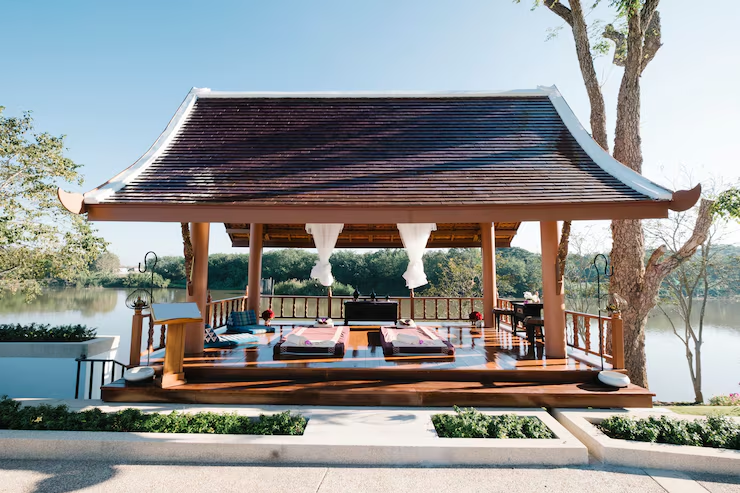One of the most crucial elements of outdoor event planning is tent rental. Tents provide much-needed shelter from unexpected weather and can contribute significantly to the overall ambiance. However, mistakes in tent rental can lead to unnecessary costs, setup delays, or even uncomfortable conditions for guests.
Here are the five common tent rental mistakes to avoid when planning for an event in Connecticut.
Why Tent Rental Matters for Your Event
Tent rental is essential for outdoor gatherings. As part of the expanding event rental market, tent rentals also reflect the increasing demand for flexible and stylish event solutions. In fact, the global party supply rental market is projected to grow at an annual rate of 11.4% from 2024 to 2030, highlighting the rising popularity of rentals for events of all kinds.
A tent allows hosts to add unique decor, lighting, and climate control elements, customizing the space for weddings, corporate events, or family celebrations. With so many benefits, proper planning in tent rental can significantly impact the overall experience.
Key Benefits of Tent Rental
- Weather Protection: Tents shield guests from sun, rain, and other unpredictable elements, ensuring comfort throughout the event.
- Space Definition: A tent creates a designated area, helping to organize seating, dining, and entertainment zones.
- Atmosphere Creation: The right tent rental allows for creative decor and lighting, enhancing the event’s ambiance.
- Guest Comfort: With options for flooring, heating, and cooling, tents make it easy to accommodate guests in style, regardless of the season.
5 Common Tent Rental Mistakes to Avoid
For event planners in Connecticut, it’s important to avoid common mistakes that can complicate event planning. Each of these errors can disrupt an otherwise smooth setup and can easily be prevented with a bit of foresight.
1. Choosing the First Tent Rental Company You Find
A frequent mistake in a tent rental is selecting the first company encountered. While it might seem convenient, jumping into a decision without comparison can lead to missed opportunities for better pricing or services.
Every tent rental company has unique offerings, quality standards, and pricing structures, so it’s essential to shop around and compare. By dedicating some time to research, clients can feel confident they’re receiving the best value for their tent rental.
Tips for Avoiding This Mistake
- Request Quotes: Get quotes from at least three tent rental companies to compare prices and options.
- Assess Offerings: Check the range of tents and additional services (like lighting, flooring, and decor) each company provides.
- Review Policies: Make sure to understand each company’s policies on setup, delivery, and cancellation.
2. Skipping a Site Visit Before Renting
Skipping a site visit is another common error that can lead to unexpected complications on the event day. While it may seem unnecessary, visiting the event location in advance allows the tent rental team to assess the space and prepare accordingly. Different sites come with unique challenges that may impact the setup and stability of a tent.
By conducting a site visit, clients can identify and prepare for logistical issues, such as parking and equipment access, that may require adjustments in setup plans.
Tips for Effective Site Visits
- Assess Terrain: Check for flat, even ground to support stable tent installation. Uneven ground may require additional equipment for setup.
- Identify Potential Obstacles: Overhanging branches, power lines, and other structures can affect where the tent can be safely placed.
- Measure Space: Confirm that the chosen tent size fits comfortably within the available space. Make adjustments if nearby structures limit space.
3. Renting a Tent That’s Too Small for Your Guest List
Renting a tent that’s too small is a common issue that often leads to discomfort and crowding. Ensuring adequate space is vital for the comfort and safety of guests, particularly for events with seating, dining, and other activities.
Most tent rental companies provide size guides or calculators to help determine the appropriate tent size. Consulting with a tent rental expert can help clients understand these sizing needs, preventing uncomfortable crowding or layout issues.
Guidelines for Choosing the Right Tent Size
- Estimate Guest Count: Accurately count the number of attendees and allow extra space for last-minute additions.
- Consider Event Type: A seated dinner requires more space than a cocktail-style event with standing guests.
- Include Additional Elements: Account for space needed for tables, dance floors, catering stations, and other essentials.
4. Booking the Tent Too Close to the Event Date
Booking a tent rental too close to the event date is risky and can limit choices or increase costs. Many people overlook this detail, especially when juggling other event responsibilities.
However, reserving a tent rental well in advance ensures a better selection of tents and accessories, as well as more time for customization. Securing a tent rental early also allows more time to plan and finalize other decor and logistical elements.
Suggested Booking Timeline
- 6-12 Months in Advance: For large-scale events or peak wedding season dates, start the tent rental search early to secure the best options.
- 3-6 Months in Advance: Smaller events may not require as much lead time, but booking three to six months in advance still provides ample choice.
- 1 Month or Less: Last-minute bookings often result in limited availability and higher prices. If unavoidable, work closely with the tent rental provider to explore available options.
5. Not Allowing Enough Time for Tent Setup and Decor
Tent setup is a critical step in the rental process, yet many hosts underestimate the time needed for proper installation. Setup involves not only erecting the tent but also testing its stability, installing any flooring, and arranging additional decor elements.
Insufficient setup time can lead to rushed installations or incomplete decor, which can affect both safety and presentation. Coordinating a realistic setup timeline with the tent rental company and other vendors prevents last-minute issues and ensures the tent is ready when guests arrive.
Considerations for Setup Timing
- Allow Buffer Time: Schedule setup several hours, or even a day, before the event start time to account for potential delays.
- Coordinate with Vendors: Ensure that decorators, caterers, and entertainment providers can access the tent area after setup for their preparations.
- Test All Installations: Confirm that lighting, flooring, heating/cooling units, and other accessories are securely installed and functioning as intended.
7 Must-Haves for Your Tent Rental Checklist
To simplify the tent rental process, using a checklist can ensure that nothing is overlooked. Here’s a recommended checklist for a smooth tent rental experience:
1. Set a Budget
Establishing a budget helps guide decisions on tent rental options, including additional features like flooring, lighting, and sidewalls. A budget allows event planners to balance quality with affordability and avoid overextending resources on the tent rental alone.
2. Choose the Right Tent Style for Your Event
Different tent styles, such as pole tents, frame tents, or clear-span tents, suit different types of events and layouts. Choose a tent style that aligns with the event’s aesthetic and functional needs, whether it’s an elegant wedding or a casual corporate event. Consulting with the rental company can help ensure the chosen tent style enhances the event experience.
3. Confirm Accessibility and Power Requirements
Verify that the event site has easy access to tent setup equipment and sufficient power sources if you plan to include lighting, climate control, or catering appliances. This is especially important for remote locations that may lack power infrastructure. Arranging for generators or extension cords can prevent power issues and ensure a smooth setup.
4. Have a Backup Plan
Outdoor events are inherently unpredictable, so having a backup plan is essential. This may involve reserving sidewalls for wind protection, additional tents for extra guests, or renting portable heating units for cooler temperatures. A contingency plan keeps the event flexible and adaptable to unexpected challenges, ensuring that guests remain comfortable.
5. Confirm Setup and Breakdown Timing
Coordinating the timing for both setup and breakdown is crucial to avoid delays on the event day. Confirm with the tent rental company how much time they need for setup and when they plan to arrive. Additionally, clarify the breakdown time to ensure it aligns with the event’s schedule and venue rules.
6. Check for Necessary Permits
Some outdoor locations, especially public venues or parks, may require permits for tent setup. Verify with the venue if permits are needed and work with the tent rental company to obtain any necessary documentation. Ensuring all permits are in place can prevent last-minute disruptions or fines, helping the event proceed smoothly.
7. Plan for Lighting and Climate Control Needs
Consider whether additional lighting or climate control is needed for the tent rental, especially for evening events or during extreme weather. Adding string lights, chandeliers, portable heaters or fans can make the tent more comfortable and visually appealing. Discuss lighting and temperature control options with the rental company to enhance the ambiance and keep guests comfortable throughout the event.
How to Choose the Right Tent Rental Company
Choosing the right tent rental company is foundational to a successful event. The Knot, a leading wedding news and resource outlet, surveyed nearly 12,000 couples and found that 72% of weddings in 2022 took place either fully or partially outdoors. This growth in outdoor events also signals the importance of having a reliable tent rental to elevate the entire experience.
Knowing this, finding a provider who understands the nuances of outdoor setups is essential. A reliable company will offer quality tents, timely service, and helpful advice on selecting the best options for the event’s needs. Below are key considerations when choosing a tent rental provider:
1. Research Multiple Providers
Selecting a tent rental company requires research and comparison. It’s important to check various companies to find the best fit based on quality, reputation, and service. Start by browsing local companies online, visiting their websites, and reading customer reviews. Pay attention to any patterns in feedback, particularly regarding service quality and reliability.
2. Ask for Recommendations
Recommendations from family, friends, or event planners can be invaluable. If they have had successful experiences with tent rental, their insights can help guide the decision. Recommendations also provide a personal touch, as they offer real insights into a company’s strengths and areas for improvement.
3. Check for Specialized Experience
Different events have different needs, and not every tent rental company specializes in all types of gatherings. Some companies focus on large weddings, while others are more suited to corporate events or private parties. Choosing a company that understands the requirements of the specific event type helps ensure smooth service.
4. Evaluate Customer Service
The quality of a tent rental company’s customer service is critical to a positive experience. A professional company will communicate clearly, respond to questions promptly, and provide transparent information about pricing and services. Responsive and respectful communication can save time, reduce stress, and prevent misunderstandings.
5. Inspect Tent Quality and Maintenance Standards
A reputable tent rental company should maintain high standards of quality and cleanliness for its inventory. It’s essential to confirm that the tents are regularly inspected, cleaned, and well-maintained, as this will impact the tent’s appearance and reliability. Ask the company about their maintenance practices, and if possible, request to see sample tents.
6. Verify Insurance and Safety Compliance
Tent rental involves equipment that must be installed safely, so choosing a company with proper insurance and compliance with safety standards is crucial. Reputable companies will carry liability insurance and follow industry guidelines for setup and installation. Inquire about the company’s insurance coverage and safety procedures to ensure safety standards for both the hosts and guests.
7. Consider Customization Options for Unique Events
Different events call for different tent styles and setups, so it’s beneficial to choose a tent rental company that offers customization options. Some companies provide additional features like customized lighting, sidewalls, or flooring options. Ask the company about available add-ons or customization packages, as these features can elevate the event and make it memorable for guests.
Frequently Asked Questions
What is the cost range for renting a tent?
Tent rental costs vary based on size, style, location, and any additional features such as flooring or lighting. Small, basic tents might start around $200, while larger, customized setups can exceed $5,000. It’s best to get quotes from multiple providers to find a price that fits your budget.
Do tent rental companies provide tables and chairs?
Many tent rental companies offer tables, chairs, and other event essentials, either as part of a package or as separate add-ons. This can be convenient for clients looking to bundle services under one provider. Be sure to confirm the availability and pricing of these items when making your tent rental reservation.
How are tent rentals secured on different surfaces?
Tents can be anchored using stakes when set up on grass or other soft ground, ensuring stability and security. On hard surfaces like concrete, weighted ballasts are typically used to keep the tent firmly in place. Discuss the setup location with the rental company so they bring the right equipment for secure installation.
Is a deposit required for tent rental reservations?
Most tent rental companies require a deposit to confirm and hold your booking, often ranging from 20-50% of the total cost. This deposit helps secure your chosen tent and event date. Make sure to review the company’s deposit and cancellation policies before finalizing your reservation.
Can tent rentals withstand strong winds and rain?
Many event tents are designed to handle moderate winds and rain, with some options built for more extreme weather. However, it’s essential to discuss weather-resistant features and policies with the rental company to understand any limitations. They may also have recommendations for additional measures, like sidewalls or extra weights, to enhance safety.
Ready to Secure the Perfect Tent Rental for Your Event?
Make your next outdoor gathering in Connecticut unforgettable by choosing the right tent rental partner. Durkin’s, located conveniently in Connecticut, specializes in high-quality tent rentals that elevate any event, from weddings to corporate functions. With our extensive range of tent options and reliable service, Connecticut residents can count on a seamless setup tailored to their needs. Contact Durkin’s today to ensure your tent rental meets every expectation!














